
I’ve already blurbed this book, both on this site for its French edition and on Amazon for its e-book Kindle edition (where you can also read a couple of perceptive five-star reviews from other fans), so let me just reiterate here that if you haven’t yet checked this sucker out, you’ve got a lot of unhealthy fun awaiting you. [4/17/13] Read more
From the September 1, 1987 Chicago Reader. Criterion has released this film on a Blu-Ray with many extras. –J.R.
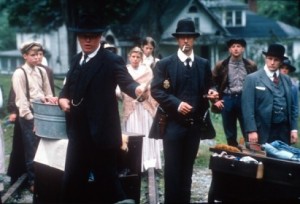
Try as he might, writer John Sayles has never been a natural filmmaker. But this sincere 1987 account of a coal miner strike and subsequent massacre in West Virginia in 1920 is so conscientiously detailed and so keenly felt and imagined — as well as attractively shot, by Haskell Wexler — that he deserves at the very least an A for effort. Simpleminded yet stirring, his depiction of a community of local whites, migrant blacks from the Deep South, and immigrant Italians gradually joining forces against the company bosses and their henchmen, under the leadership of a pacifist organizer, offers a bracing alternative to complacent right-wing as well as liberal claptrap. If Sayles’s bite were as lethal as his bark, he might have given this a harder edge and a stronger conclusion. But the performances are uniformly fine: Chris Cooper, Mary McDonnell, Kevin Tighe (perfect in dress and physiognomy, but strictly one-dimensional as scripted), James Earl Jones, and Sayles; the regional accents are especially well-handled. 133 min. (JR)
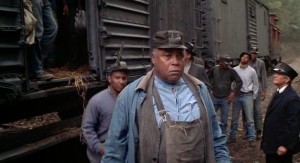 Read more
Read more
This review of Other Voices, Other Rooms appeared in the February 13, 1998 issue of the Chicago Reader. I’m not positive that the second image I’ve used to represent Sokurov’s Oriental Elegy actually comes from that video and not from another Sokurov work, but it evokes my memory of that video so well that I hope I can be granted poetic license for this. — J.R.
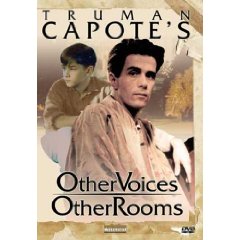
Other Voices, Other Rooms
0 (worthless)
Directed by David Rocksavage
Written by Sara Flanigan and Rocksavage
With Lothaire Bluteau, Anna Thomson, David Speck, April Turner, and Frank Taylor.
By Jonathan Rosenbaum
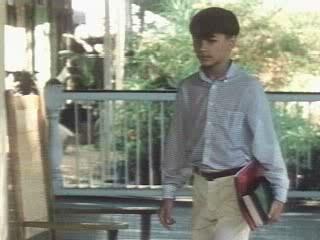
I cannot tell a lie: my first exposure to two great tragic novels, Nathanael West’s Miss Lonelyhearts (1933) and William Faulkner’s The Sound and the Fury (1929), was the dreadful Hollywood adaptations released during my teens, both of which had happy endings. As silly as these movies were — Vincent J. Donehue’s Lonelyhearts (1958) and Martin Ritt’s The Sound and the Fury (1959) — they piqued my interest in the original novels, and I discovered, among many other things, the blatant inadequacy of the movie versions.
The same thing could happen to a teenager attending the dreadful film adaptation of Truman Capote’s first published novel, Other Voices, Other Rooms (1948) — not a novel of the same caliber as West’s and Faulkner’s, though still a work of real distinction, from his best period — but the odds are slim. Read more
Mia Farrow on Spielberg and Riefenstahl
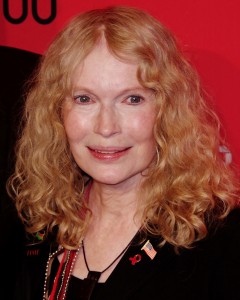
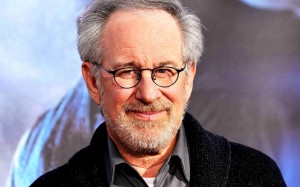
I’m almost two weeks late in hearing about this, but I’m assuming other latecomers will be interested as well in the op-ed piece published by Mia Farrow and her son Ronan in the March 28 issue of the Wall Street Journal. Titled “The Genocide Olympics,” the Farrows’ article attacks Steven Spielberg for his friendliness in agreeing to help stage the Olympics ceremonies in Beijing, thereby implicitly putting some kind of seal of approval on China’s complicity in the Darfur genocide, which the Farrows have recently been observing firsthand. “Is Mr. Spielberg, who in 1994 founded the Shoah Foundation to record the testimony of survivors of the holocaust, aware that China is bankrolling Darfur’s genocide?” they ask. And a bit later: “Does Mr. Spielberg really want to go down in history as the Leni Riefenstahl of the Beijing Games?”
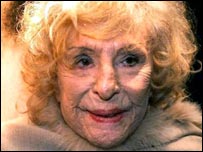
Various web sites have been having a field day with this, on the right [2014: this link, at http://www.libertyfilmfestival.com/libertas, has subsequently been removed] as well as the left. The right, of course, is taking particular pleasure in drawing attention to the hypocrisy of a liberal like Spielberg.
Read more
Commissioned by the Chicago Reader in late September 2016. — J.R.


The eponymous New Jersey town proves to be a hotbed of poetry and art in this comedy from writer-director Jim Jarmusch, thanks to his beautifully loony conceit that all ordinary Americans are closet poets and artists of one kind or another (even if they don’t always know it). The bus-driver hero (Adam Driver), also named Paterson, writes poetry, and his Iranian wife (actress and rock musician Golshifteh Farahani) goes in for black-and-white domestic design; they know they’re artists and are completely smitten with one another, but their neighbors in a local bar seem less fortunate. Like many of Jarmusch’s best films, this keeps surprising us with its minimal, witty inflections, at once epic and small-scale, inspired in this case by the book-length poem Paterson by William Carlos Williams. (Jonathan Rosenbaum)
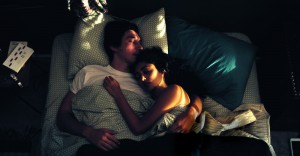
 Read more
Read more
https://www.youtube.com/watch?v=8yr8hEyFYcg

The Portuguese title of this beautiful, wordless 15-minute documentary means “One Century of Power,” and the black and white footage comes from one of his earliest films, Hulha Branca (1932). [7/8/15]

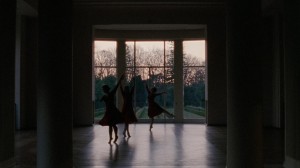 Read more
Read more














